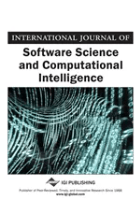
International Journal of Software Science and Computational Intelligence-IJSSCI
Scope & Guideline
Catalyzing Collaboration in Software Science and Computational Research
Introduction
Aims and Scopes
- Artificial Intelligence and Machine Learning:
The journal consistently publishes research on the application of AI and machine learning techniques across diverse fields, including healthcare, marketing, and software development. This focus includes the development of algorithms, models, and frameworks that enhance decision-making and predictive capabilities. - Computational Intelligence Techniques:
IJSSCI explores various computational intelligence methodologies, such as neural networks, fuzzy systems, and evolutionary algorithms, to solve real-world problems. The journal highlights innovative approaches that leverage these techniques for optimization, classification, and data analysis. - Software Development and Engineering:
The journal addresses topics related to software engineering practices, including software cost estimation, development methodologies, and optimization algorithms. Research in this area aims to improve software quality, efficiency, and adaptability in dynamic environments. - Interdisciplinary Applications:
IJSSCI promotes research that intersects with other domains, such as healthcare, finance, and environmental science. This includes studies that apply computational intelligence to enhance processes, such as disease diagnosis, resource management, and user behavior analysis. - Emerging Technologies and Trends:
The journal is dedicated to exploring emerging technologies, including IoT, cloud computing, and edge computing, and their implications for software science and computational intelligence. Research in this area focuses on the integration and security of these technologies in practical applications.
Trending and Emerging
- Neurotechnological Applications:
Recent publications indicate a growing interest in neurotechnological applications, particularly in understanding consumer behavior and enhancing user experience. This trend is significant as it merges neuroscience with artificial intelligence, offering insights into decision-making processes. - Federated Learning and Privacy:
The rise of federated learning models illustrates a strong trend towards privacy-preserving techniques in machine learning, particularly in sensitive areas like healthcare and critical infrastructure. This theme is crucial as it addresses the increasing concerns surrounding data privacy and security. - Energy-Efficient Algorithms and Sustainability:
Research focusing on energy-efficient algorithms, particularly in cloud computing and IoT environments, has gained momentum. This trend reflects a broader societal push towards sustainability and responsible resource management in technology. - Health Informatics and AI:
There is a marked increase in studies applying AI techniques to health informatics, including disease detection and patient monitoring. This trend underscores the importance of leveraging computational intelligence to improve healthcare outcomes and operational efficiencies. - Deep Learning Innovations:
Innovative applications of deep learning, particularly in image recognition and natural language processing, have become a focal point. This trend is indicative of the growing capabilities of deep learning models and their expanding applicability across various sectors.
Declining or Waning
- Traditional Software Development Methodologies:
There has been a noticeable decrease in publications focused on traditional software development methodologies, likely due to the increasing adoption of agile and DevOps practices. Researchers may be moving towards more modern approaches that emphasize flexibility and collaboration. - Basic Data Processing Techniques:
The journal has seen fewer papers on basic data processing techniques, such as simple statistical methods or foundational data analysis. This could indicate a shift towards more complex and advanced computational techniques, as researchers seek innovative solutions to intricate problems. - Static Security Analysis:
Research related to static security analysis methods for software systems appears to be waning. As cybersecurity threats evolve, there may be a growing preference for dynamic analysis and real-time threat detection techniques, leading to a decline in traditional static approaches. - Generalized IoT Applications:
There is a decline in papers focusing on generalized IoT applications without specific use cases or innovations. As the field matures, there is a trend towards more specialized and application-driven research that addresses unique challenges within specific domains.
Similar Journals
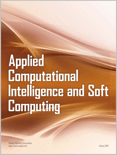
Applied Computational Intelligence and Soft Computing
Advancing the Frontier of Intelligence and ComputingApplied Computational Intelligence and Soft Computing, published by HINDAWI LTD, is a premier open access journal that has been disseminating critical research since 2009, focusing on the intersection of artificial intelligence and soft computing. With an impressive array of quartile rankings in 2023, including Q2 in Civil and Structural Engineering and Computational Mechanics, this journal has established itself as a significant contributor to the fields of computer science and engineering. Based in Egypt, it plays a vital role in advancing knowledge by providing researchers, professionals, and students with easy access to high-quality studies. The journal’s rigorous peer-review process ensures that only the most impactful research is highlighted, making it an essential resource for those looking to stay abreast of the latest innovations and methodological advancements in applied computational intelligence. Its Scopus rankings further affirm its influence and reputation within the academic community, exemplifying its commitment to facilitating collaboration and fostering intellectual discourse in various scientific domains.
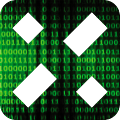
SoftwareX
Unlocking the Future of Software EngineeringSoftwareX is an innovative open-access journal published by Elsevier that has been championing advancements in the fields of Computer Science and Software since its inception in 2015. With a focus on presenting high-quality research, SoftwareX aims to foster collaboration and knowledge exchange among researchers and practitioners, advancing the way software and tools are developed and disseminated within the community. This journal operates under a flexible access model, allowing broad visibility and accessibility to its diverse readership. Positioned in the Q2 and Q3 quartiles of the Scopus ranking system within the domains of Computer Science Applications and Software respectively, SoftwareX stands as an influential platform for sharing cutting-edge methodologies and innovations. The journal's aim is not only to serve as a repository of knowledge but also to embolden practitioners and scholars alike to engage with and implement findings that can accelerate progress within the realms of software engineering and application. Situated in Amsterdam, Netherlands, SoftwareX has embraced an international reach, welcoming submissions that address complex challenges through novel software solutions.

JOURNAL OF COMPUTER SCIENCE AND TECHNOLOGY
Exploring Innovations in Computational Theory and PracticeJOURNAL OF COMPUTER SCIENCE AND TECHNOLOGY, published by Springer Singapore Pte Ltd, is a pivotal platform in the rapidly evolving realms of computer science and technology. With an ISSN of 1000-9000 and an E-ISSN of 1860-4749, this journal encompasses a diverse array of topics including computational theory, hardware and architecture, software engineering, and applications of computer science. Spanning over three decades from 1986 to 2024, it boasts an impressive standing within academic circles, ranking in the Q2 quartile across several key categories and achieving notable placement in Scopus metrics. Although this journal operates under a subscription-based model, it remains a crucial resource for researchers, professionals, and students seeking to advance their knowledge and contribute to discussions in computer science. The JOURNAL OF COMPUTER SCIENCE AND TECHNOLOGY is committed to fostering innovation and scholarly communication in the field, encouraging submissions that contribute substantive advancements in theory and application.
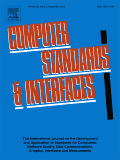
COMPUTER STANDARDS & INTERFACES
Navigating the Evolving Landscape of Computer Science.COMPUTER STANDARDS & INTERFACES is a prestigious journal published by Elsevier, dedicated to the intersection of technology, law, and standards in computing. With an impressive impact factor and categorized in the Q1 quartile across several relevant fields, including Computer Science Applications, Hardware and Architecture, and Software, this journal has established itself as a critical resource for researchers and professionals alike. Covering a comprehensive range of topics over its converged years from 1986 to 2025, it provides rigorous peer-reviewed articles and vital insights into the evolving landscape of computer standards. The journal's Scopus rankings affirm its significance with top percentiles in multiple categories, including a remarkable 12th rank in Social Sciences and Law. COMPUTER STANDARDS & INTERFACES welcomes contributions that push the boundaries of knowledge and foster discussions on best practices and innovations, making it an invaluable platform for students and seasoned researchers passionate about advancing the field.
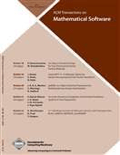
ACM TRANSACTIONS ON MATHEMATICAL SOFTWARE
Exploring groundbreaking methodologies in mathematical software.Welcome to the ACM Transactions on Mathematical Software, a prestigious journal published by the Association for Computing Machinery (ACM). With an ISSN of 0098-3500 and an E-ISSN of 1557-7295, this journal has been at the forefront of innovation in the field since its inception in 1975. It serves as a critical platform for researchers, professionals, and students, facilitating the dissemination of advanced mathematical techniques and software developments. The journal is recognized for its outstanding impact, evidenced by its Q1 classification in Applied Mathematics and Q2 in Software for 2023, along with an impressive Scopus ranking placing it in the 85th percentile for Applied Mathematics and the 58th percentile for Computer Science. Our objective is to publish high-quality research that explores new methodologies in mathematical software and their applications, driving the field forward. Although not an open access journal, the relevance and rigor of the content ensure that it remains a valuable resource in mathematical and computational sciences. Join us in exploring the latest in mathematical software and contribute to shaping future advancements.
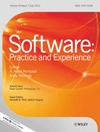
SOFTWARE-PRACTICE & EXPERIENCE
Bridging academic rigor and practical experience in software development.SOFTWARE-PRACTICE & EXPERIENCE, published by Wiley, is a prestigious journal that has significantly contributed to the field of software engineering since its inception in 1971. With a Q2 ranking in Software according to the 2023 category quartiles, it stands among the top tier of journals, positioned in the 79th percentile within Scopus’s Computer Science _ Software category. The journal focuses on disseminating high-quality research that reflects both academic rigour and practical application in software-related practices, ensuring that it remains relevant for researchers, professionals, and students alike. Although it does not currently offer Open Access options, it continues to provide invaluable insights and thorough explorations of contemporary issues in software development, methodology, and experience. As it converges toward 2024, SOFTWARE-PRACTICE & EXPERIENCE aims to foster a greater understanding of effective software practices in a rapidly evolving technological landscape.

PROGRAMMING AND COMPUTER SOFTWARE
Connecting Researchers and Practitioners in Software DevelopmentPROGRAMMING AND COMPUTER SOFTWARE is a distinguished journal committed to advancing the field of software development and programming methodologies. Published by PLEIADES PUBLISHING INC, this journal has been a valuable resource since its inception in 1978, reaching out to researchers, professionals, and students alike. With an emphasis on rigorous peer-reviewed articles, the journal holds a Q3 ranking in the realm of Software according to the latest 2023 Category Quartiles. Though it does not offer open access, the journal ensures that high-quality research is disseminated to its audience, providing insights into evolving programming techniques, software engineering challenges, and innovative solutions. With its convergence of years extending to 2024, PROGRAMMING AND COMPUTER SOFTWARE remains a pivotal publication, fostering a deeper understanding of the complexities in computer programming while supporting the broader software community.
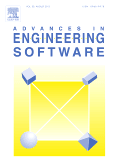
ADVANCES IN ENGINEERING SOFTWARE
Innovating Solutions for Engineering Challenges.ADVANCES IN ENGINEERING SOFTWARE, published by Elsevier Science Ltd, stands at the forefront of interdisciplinary research in the realms of engineering and software development. With an impressive impact factor reflected in its Q1 and Q2 rankings in the Engineering (Miscellaneous) and Software categories, respectively, this journal serves as an essential platform for researchers and practitioners alike to disseminate innovative findings and methodologies from 1982 to the present. Strategically positioned within the United Kingdom, it engages scholars, professionals, and students by publishing high-quality articles that emphasize advancements in software applications related to engineering challenges. Although it does not currently offer open access, the journal remains highly regarded within the academic community, consistently attracting impactful research and maintaining a commendable Scopus ranking within the top tiers of both general engineering and software disciplines. Explore the latest contributions to enhance your knowledge and stay updated on trailblazing developments in engineering software.

Computer Science Journal of Moldova
Bridging Regional Insights with Global ImpactComputer Science Journal of Moldova, published by the Institute of Mathematics and Computer Science Academy, serves as a pivotal platform for disseminating research in the field of computer science since its inception in 1993. With a focus on a diverse range of subjects, including Artificial Intelligence, Computational Mathematics, and Software Engineering, this open access journal aims to foster innovation and collaboration among researchers, students, and industry professionals. Despite its current positioning in the lower quartiles as per the latest Scopus rankings, the journal remains committed to enhancing the visibility of regional research and addressing contemporary challenges through scholarly contributions. The journal’s open access model ensures that knowledge is freely available, promoting broader readership and impact within the international academic community. As it moves through the converged years from 2019 to 2024, the Computer Science Journal of Moldova continues to aspire toward empowering the next generation of computer scientists while enriching the global dialogue in this rapidly evolving field.
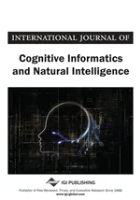
International Journal of Cognitive Informatics and Natural Intelligence
Transforming Understanding through Cognitive ResearchThe International Journal of Cognitive Informatics and Natural Intelligence, published by IGI Global, is an essential resource for researchers and professionals exploring the intersections of cognitive informatics, artificial intelligence, and human-computer interaction. Since its establishment in 2007, this journal has focused on advancing the understanding of cognitive systems and their applications in natural intelligence, contributing significantly to the fields of software engineering and interface design. Operating out of the United States, the journal aims to disseminate high-quality research and innovative methodologies to foster interdisciplinary collaboration. Despite its current standing in Q4 quartiles for the fields of Artificial Intelligence, Human-Computer Interaction, and Software, it serves as a vital platform for emerging scholars and seasoned professionals alike seeking to explore new frontiers in cognitive technologies. While it does not provide direct open access, these publications are instrumental in shaping academic discourse, and contribute to ongoing advancements in how we understand and integrate cognitive science into practical applications.